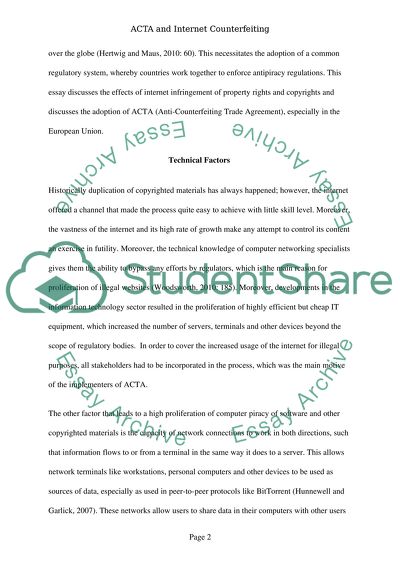Cite this document
(“ACTA and Internet Counterfeiting Essay Example | Topics and Well Written Essays - 1250 words”, n.d.)
Retrieved from https://studentshare.org/e-commerce/1397792-essay
Retrieved from https://studentshare.org/e-commerce/1397792-essay
(ACTA and Internet Counterfeiting Essay Example | Topics and Well Written Essays - 1250 Words)
https://studentshare.org/e-commerce/1397792-essay.
https://studentshare.org/e-commerce/1397792-essay.
“ACTA and Internet Counterfeiting Essay Example | Topics and Well Written Essays - 1250 Words”, n.d. https://studentshare.org/e-commerce/1397792-essay.


